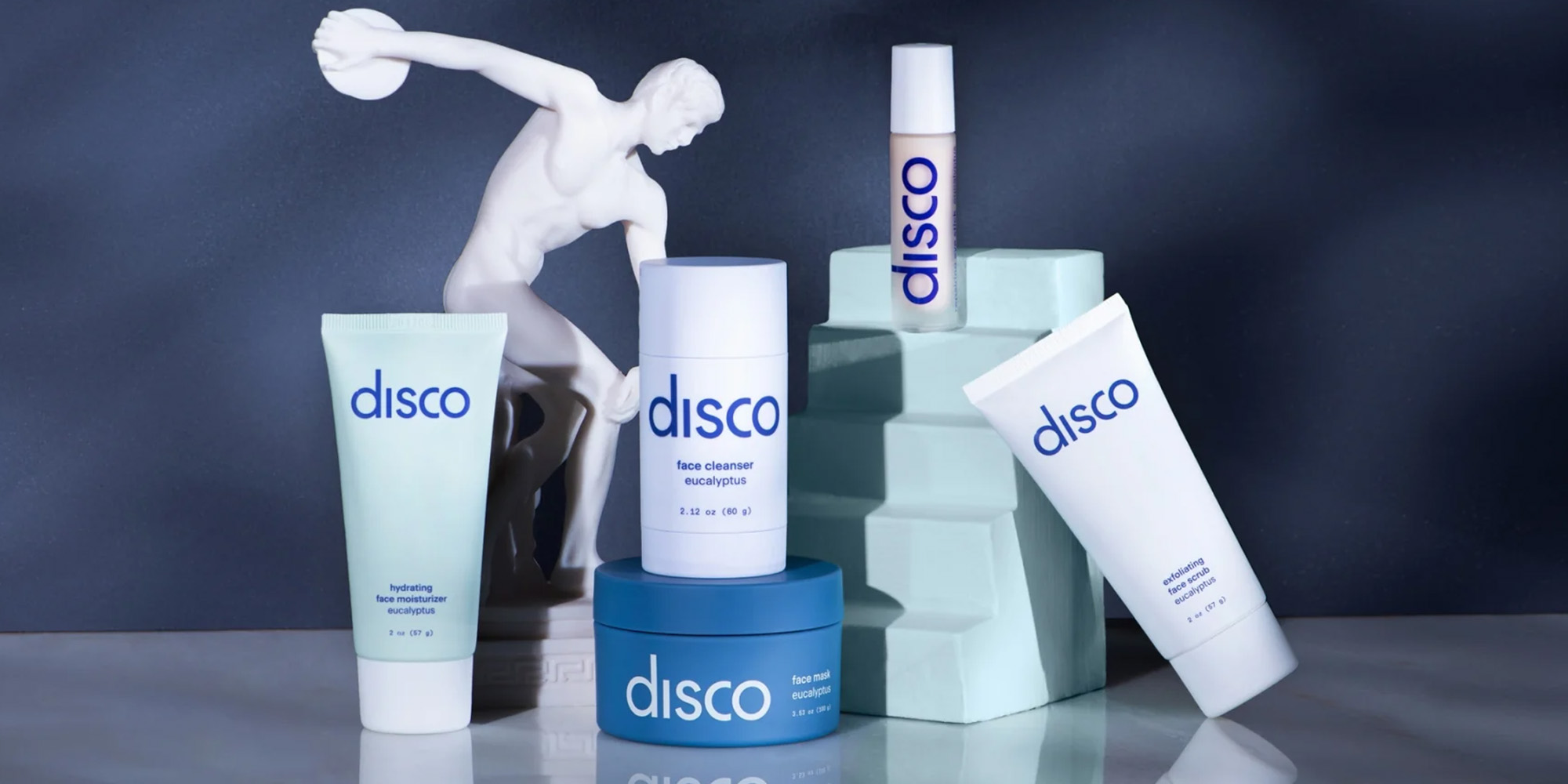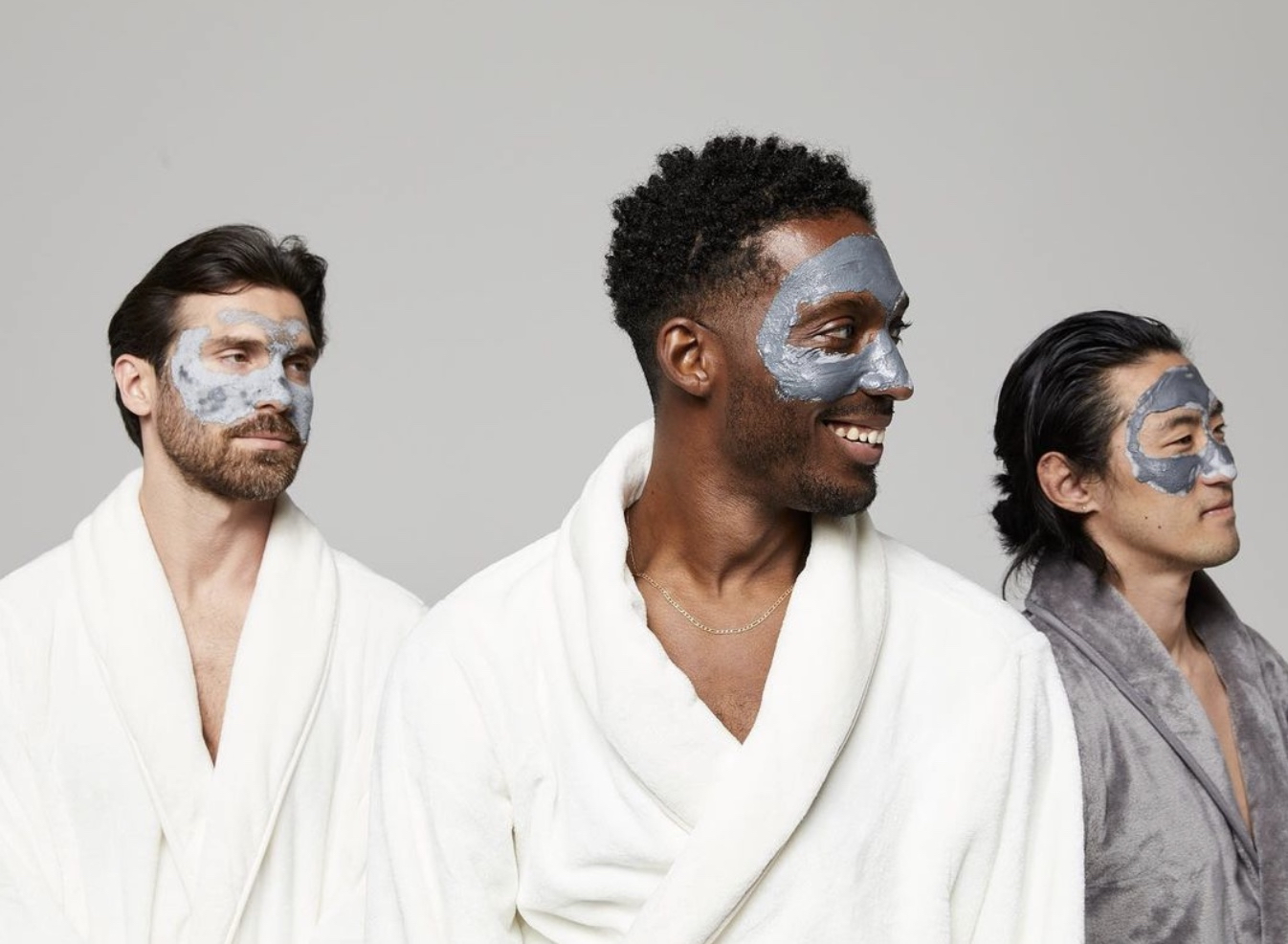
Men’s Skincare Brand Disco Liquidates, Founder Admits Its Positioning “Never Resonated With Men At Scale”
Disco, a men’s skincare brand that raised over $8 million in funding, has liquidated its business.
The brand filed for Chapter 7 bankruptcy on Nov. 16 after Settle Inc., the consumer packaged goods financial resource that was its lender, foreclosed on inventory valued at around $4.7 million, and it ceased operations. Disco lists 45 unsecured creditors, including Verde Cosmetics Labs, Donut Digital, JP Packaging, IronClad Consulting, Hire Horatio and Griffin Johnson, with claims amounting to nearly $861,000. Following payments for administrative expenses, no money will be available for unsecured creditors, according to the filing.
“This unfortunate outcome left shareholders with nothing, disbanded our great team, thousands of subscribers were left out to dry, and countless vendors were not paid,” wrote founder Benjamin Smith on social media. “Shutting Disco down resulted in the loss of millions of investor capital from friends, family, close connections, and funds I respect and trust.”

The liquidation underscores the challenges facing skincare brands in a fledgling premium men’s segment and consumer brands more generally rooted in direct-to-consumer distribution and digital advertising. Although Benjamin Smith, founder of Disco, points out in a LinkedIn post on the brand’s demise that, in 2020 and 2021, it was a “successful growing business, profitably and rapidly scaling to an 8-figure run rate with a lean, but strong team,” the bankruptcy filing shows the brand lost almost $1.74 million in 2023 gross revenue, nearly $3.6 million in 2022 gross revenue and roughly $775,000 in 2021 gross revenue.
Disco launched in 2019 with seven clean face and body care products housed in minimalist packaging that proudly wasn’t hyper masculine. It kicked off on its own website, but later extended distribution to retailers and e-tailers such as Nordstrom, Urban Outfitters, Anthropologie, Neighborhood Goods and Amazon, where its hero product, Repairing Eye Stick, can currently be purchased for $36.
Disco intended to make upscale men’s skincare accessible via its subscription model and encourage men to cultivate self-care routines. The brand partnered with dermatologist Eva Simmons-O’Brien and Johnson, an influencer with 9.9 million TikTok followers, and received coverage by Byrdie, Forbes, Women’s Wear Daily, GQ and Rolling Stone.
“Focus on the fundamental metrics of your business out of the gate.”
In his LinkedIn post, Smith spells out Disco attempted to raise capital in 2022 and 2023 and endured three failed acquisition processes. To salvage its business, he writes it diminished its burn rate and “right-sized its unit economics.” However, Smith admits it “took the medicine too late.” In the Chapter 7 filing, Smith’s investment vehicle Paradigm Capital is shown to have owned 49.12% of Disco and Homewood Capital 16.39%. Among its other investors were Midnight Venture Partners, Paul Hedrick, founder of Tecovas, Bryan Mahoney, co-founder of Chord Commerce, and Taylor O’Neil, partner at Bouldin Creek Capital.
On LinkedIn, Smith divulges five key lessons from Disco’s downfall in the areas of category and brand positioning, product-market fit, customer acquisition, financing and communication. Addressing the brand’s category and positioning, he explains, “Persuading men to adopt new behaviors is an expensive marketing challenge. Moreover, our neutral brand and positioning, while aesthetically pleasing, never resonated with men at scale.” He counsels brands to “pick a product in a category with existing demand.”
Disco is hardly the only brand to believe in the potential of men adopting new grooming and personal care behaviors. Many brands have poured into the category, but, as Lorne Lucree, SVP of global innovation at the skincare brand Tatcha, highlights in a LinkedIn post, just a few upstarts, notably Manscaped and Dr. Squatch, have had any real traction. Unilever recently offloaded Dollar Shave Club, and Carlyle Group has reportedly put Every Man Jack up for sale. Rather than men’s brands selling broad offerings, Lucree says “niche disruptors,” particularly those like Hustle Butter, Recovery Aftercare and Mad Rabbit in the tattoo aftercare arena, are gaining ground.

On the topic of product-market fit, Smith says Disco was dependent on Repairing Eye Stick as the “sole driver of growth.” He recommends, “Whenever possible, test market demand and validate with actual (yes, real life people) customers before starting a business.” Diving into customer acquisition, he suggests, “Don’t rely on one programmatic advertising channel for acquiring customers. Ensure there is a network effect built into your business for growth outside of investing money into paid advertising.”
Smith acknowledges Disco didn’t adjust to shifting expectations on the part of investors, who’ve gone from advocating for hockey-stick growth and often unprofitable strategies to achieve it early on in brands’ life cycles to emphasizing moderate growth and profitability. He tells brands, “Focus on the fundamental metrics of your business out of the gate. It’s acceptable to focus on growth in certain sections of the business, but ensure you have a clear path to profitability.” Lastly, he advises, “Leverage the people around you as they genuinely want to help you. Be sure to over-communicate, especially in tough times.”
Despite Disco’s troubles, Smith isn’t done with entrepreneurship. He concludes his LinkedIn post on the brand by stating, “I will soon be ready to lace up and try my luck at the entrepreneurial game once again. In the meantime, I want to take this important moment to thank everyone who supported me on this rollercoaster of an adventure with Disco: Investors, advisors, friends, customers, and of course, the Disco team. I apologize for letting you down with this outcome.”





Leave a Reply
You must be logged in to post a comment.